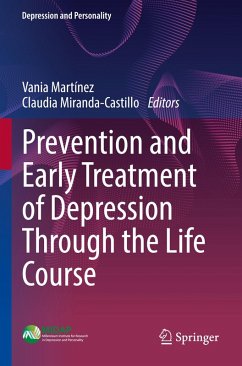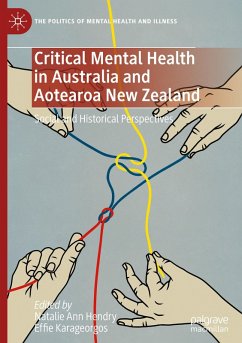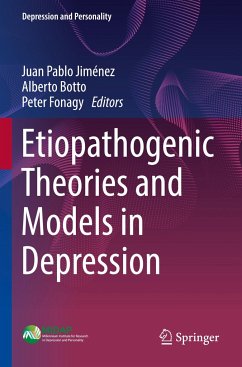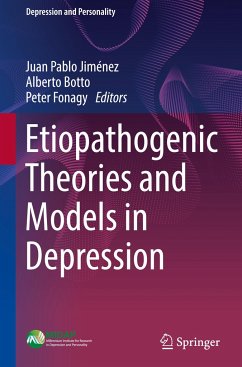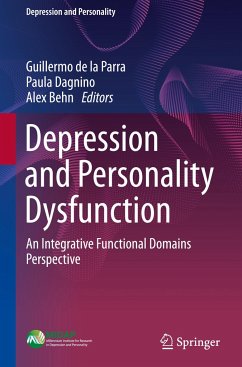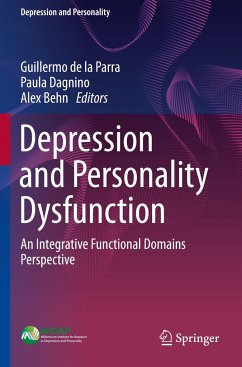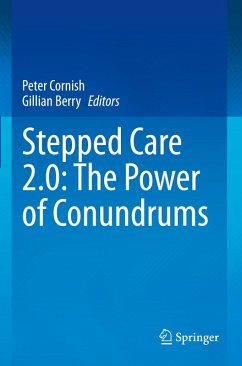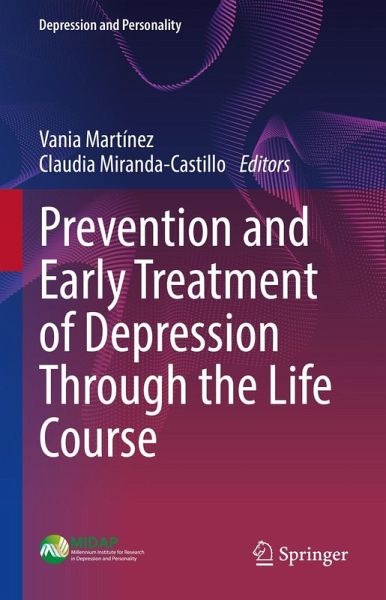
Prevention and Early Treatment of Depression Through the Life Course

PAYBACK Punkte
46 °P sammeln!
This book presents current evidence of new perspectives for the prevention and appropriate management of depression in people across the life course. Special attention has been dedicated to facilitating factors for the development of health system capacity and the effectiveness of the different types of interventions. The first part of the book reviews the innovations in global prevention and non-pharmacological treatments for children, adolescents, and youths. The second part reviews interventions for adults across the lifespan, including older adults and caregivers.Despite the efforts to tac...
This book presents current evidence of new perspectives for the prevention and appropriate management of depression in people across the life course. Special attention has been dedicated to facilitating factors for the development of health system capacity and the effectiveness of the different types of interventions. The first part of the book reviews the innovations in global prevention and non-pharmacological treatments for children, adolescents, and youths. The second part reviews interventions for adults across the lifespan, including older adults and caregivers.
Despite the efforts to tackle depression, the COVID-19 pandemic directly or indirectly affected the mental health of the population, including an increase in the incidence of depressive disorders, which are underdiagnosed and undertreated in young and older people. Because of the characteristics of adolescence and older adulthood, people can consider depression signs and symptoms as natural, neglecting aproper diagnosis.
To address these challenges in the clinical management of depression, Prevention and Early Treatment of Depression Through the Life Course presents a life course perspective on the analysis and treatment of depression to help clinical psychologists, psychiatrists and other mental health professionals understand the mechanisms associated with the onset of depression and identify/develop proper evidence-based treatments for different ages and in different circumstances.
Despite the efforts to tackle depression, the COVID-19 pandemic directly or indirectly affected the mental health of the population, including an increase in the incidence of depressive disorders, which are underdiagnosed and undertreated in young and older people. Because of the characteristics of adolescence and older adulthood, people can consider depression signs and symptoms as natural, neglecting aproper diagnosis.
To address these challenges in the clinical management of depression, Prevention and Early Treatment of Depression Through the Life Course presents a life course perspective on the analysis and treatment of depression to help clinical psychologists, psychiatrists and other mental health professionals understand the mechanisms associated with the onset of depression and identify/develop proper evidence-based treatments for different ages and in different circumstances.





